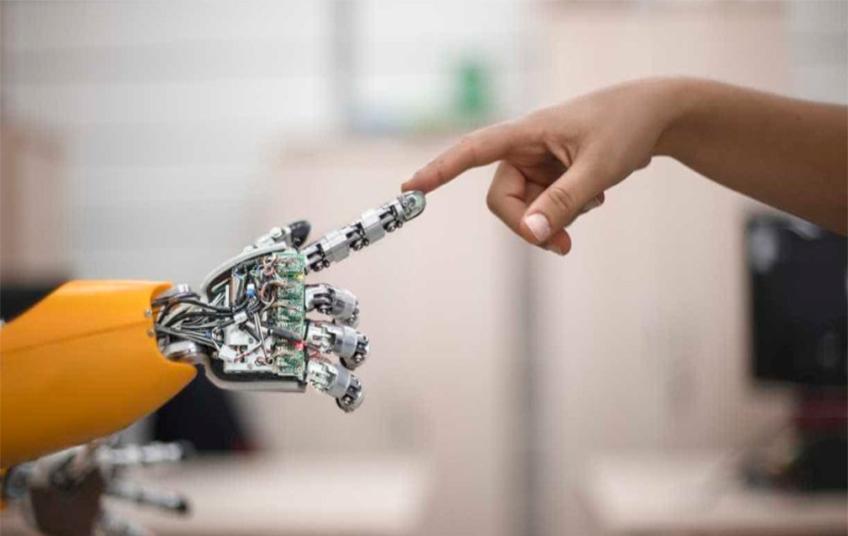By Asemana
Africa-Press – Zimbabwe. The leader of the African Union Cybersecurity Expert Group told Lusa that the potential for using Artificial Intelligence (AI) in Africa “is at serious risk of being derailed, and those who will derail it are African governments, out of fear”.
“ As with many other things, there is great potential for using AI in Africa. However, this potential is at serious risk of being derailed. And the people who will make it derail are the African governments, out of fear” , said in statements to Lusa from Abuja, the Nigerian capital, Abdul-Hakeem Ajijola, president of the African Union (AU) Group of Experts that designed the Convention Malabo on the ethical use of AI on the continent.
“ When a new technology emerges, the first tendency of many of our leaders is to ban, stop or restrict it. We still have countries across the continent, and indeed across the world, where the Internet is regularly shut down, ” added the Nigerian cybersecurity expert, commissioner of the World Commission for the Stability of Cyberspace (GCSC) and member of the United Nations cabinet. United Nations for Disarmament Affairs (UNODA), among other functions in several multilateral organizations.
According to the expert, “ all this is due to fear and it is not about national security, but about the security of the regimes, the security of those in power, not the security of the systems or the well-being of the system ”.
Abdul-Hakeem Ajijola began working 14 years ago with the African Union (AU) on a regulatory framework for the use of AI in Africa, which would be adopted by the Pan-African organization’s Assembly in Malabo in 2014, but only with the signature of Mauritania, in May last year, reached the minimum number of signatory countries – 15 out of 55 AU member states, coming into force the following month.
Among the Portuguese-speaking African countries, Guinea-Bissau and São Tomé and Príncipe have signed but not yet ratified.
“ It has been a long journey and we are still on it, because although 15 countries have acceded to the Malabo Convention, we need a much higher number ,” said Ajijola.
On the other hand, “ now that it has been accepted by a minimum number of countries, the first thing that has to happen is to be updated ”, added the leader of the group of experts that prepared the document, because “ a lot of technology has changed and, without a doubt, Much of the thinking in Africa – and around the world – has changed .”
“ It is necessary to carry out an urgent review”, for which “the AU needs to create a working group or an entity in charge of moving the project forward and resolving implementation problems, creating the necessary partnerships ”, he said.
But it will always be up to States to be responsible for modifying a text, which “is recoverable, is not obsolete in the sense that the continent will have to start over, but which clearly has some things that need to be updated”, highlighted Abdul- Hakeem Ajijola.
The Malabo Convention is a “comprehensive” text, in Ajijola’s expression, which “ does not directly include ” the guidelines and principles of the United Nations Educational, Scientific and Cultural Organization (UNESCO) on ethical use of AI, because it does not go into the details adopted by the document from that United Nations office in 2021, “but it allows this type of evolution”, according to the Nigerian expert.
UNESCO’s framework of guidelines regarding the ethical use of AI is based on the general principles of respect, protection and promotion of human rights, fundamental freedoms and human dignity; in the coexistence of humanity in peaceful, fair and interconnected societies; promoting a healthy environment and ecosystems and ensuring respect for diversity and inclusion.
The continent itself, Ajijola stressed, “ has published some guidelines and principles on AI and may accept some of UNESCO’s ethical guidelines .” This “would actually be one of the areas of interest” in the review of the Malabo Convention, the expert pointed out.
On the issue of AI and its regulation, he made an analogy: “it’s like salt in soup. If we add too much salt, the soup will no longer be edible. And if we don’t add enough salt, it becomes inedible.”
“ While we need regulation for AI and many new emerging technologies, we need to avoid being too strict, it is about achieving the ideal mix of regulation ,” Ajijola added.
“ As Africans, we need to develop our own philosophy, principles and ethics for AI ”, and “ proactively address the challenges of shaping its governance ”, because “its potential for the inclusive and sustainable development of the continent is immense”, he further said.
“ It is very important, not only in the military domain, but everywhere, that Africa engages in the necessary dialogue to define its principles, ethics and philosophy, rooted in its own cultures and not based on the interests of technology sellers. Only then can we truly harness the power of unbiased AI for both civilian and military applications ,” maintained Abdul-Hakeem Ajijola.
asemana
For More News And Analysis About Zimbabwe Follow Africa-Press






